Minnikhanov: ''Fishman will not fly without the republic, it will be a very short flight''
Russian Investment Forum – Sochi 2019: about how Shuvalov bargained with the president of Tatarstan for the assistant, and how national projects are going to improve the lives of Russians
Russian Investment Forum, a platform where businesses and the government meet, present the country's economy and conclude mutually beneficial contracts, was held on 14 February in Sochi with the participation of Prime Minister Dmitry Medvedev. This year, more than 3,000 people from all regions of the country and dozens of countries of the world gathered there, about 500 agreements worth 800 billion rubles are expected to be signed. The main topics of the forum were the implementation of national projects and the strategy of spatial development until 2025. The large delegation from Tatarstan headed by Rustam Minnikhanov also went to Sochi. Their programme included meetings with heads of regions, businesses and speeches at three sessions. Read more in the material of Realnoe Vremya.
''People in our country are experiencing hardships''
This year, the main topics of Russian Investment Forum were the implementation of national projects and the strategy of spatial development, which implies the division of Russia into 12 macro-regions. Opening the plenary session, Russian Prime Minister Dmitry Medvedev noted that the current meeting was different from the previous ones:
''For the first time we are going to talk about the comprehensive transformation of our country, and to discuss it very specifically. Everything that we have to do to improve people's lives, to ensure strategic growth and development of the country in the next 6 years, is reduced to the indicators of national projects.''
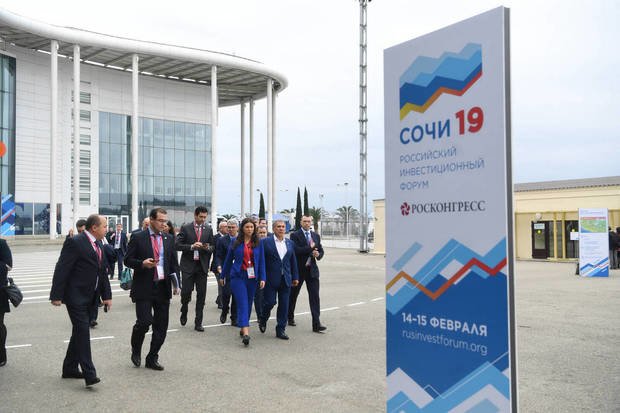
''We are aware that the economy has serious structural imbalances and that the sanctions pressure will continue. That our infrastructure requires a deep transformation, that our education and health care are only on the way to the desired level, and, most importantly, that people in our country are experiencing hardships and they want social justice,'' said the prime minister.
According to him, national projects are one of the ways to solve these problems. At the same time, it is important that ''people do not wait until a bright future, these promises are well known to all of us, especially to the older generation, but they should feel the results every day.'' Medvedev reminded that citizens trust not fine words, but what they see: a new road or school, landscaped park or promenade. Further, the prime minister outlined several targets: more than 1,5 million apartments and 300,000 individual houses annually, 40 built and reconstructed children's departments and hospitals, 420 outpatient cancer care centres, 230,000 new places in schools, 245 children's technology parks, etc.
Citizens do not feel economic growth
The situation will be monitored not only from Moscow offices, Medvedev warned, the government will go to the regions, and such trips have already begun. ''For each unfinished school, for each unrepaired kilometre of the road, a park not put in order or uncleaned dump, not abstract power, but a concrete official will be responsible for these. I hope that everyone in the audience understands that you will accountable to the government.''
The prime minister is convinced that we have everything for success — positive dynamics in macroeconomics, unprecedented volume of state investments in national projects, involvement of all regions and new personnel. At the same time, he admitted that our country still faces a number of unfavourable factors: trade wars, growth of protectionism, slowdown of global economy, sharp changes in oil prices, threat of expanding sanctions, etc. But at the same time, our economy is already reacting differently: GDP has grown by more than 2%, economic growth has been observed for the third year in a row.
''But the quality of growth [of the economy] is not satisfying, the most important thing is that it is not felt by our citizens. The growth rate of investments in fixed assets is lower than the target values, there are other unfavourable moments,'' said Medvedev.
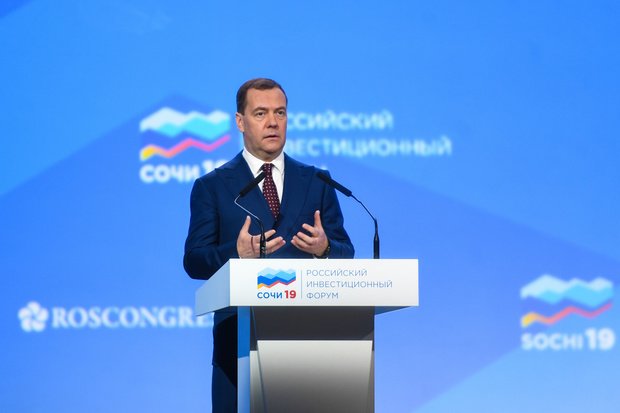
At the same time, the financial markets and the banking system as a whole are stable, he believes, and unlike many countries, we have an adequate current situation, which means that the level of foreign debt is safe — it fell by more than $60 billion last year. At the same time, international rating agencies increased Russia's sovereign credit rating and recognized the stability of our economy, which, according to Medvedev, is also a weighty argument for investors.
''National projects should be tailored to the specific needs of the regions''
The task is to consolidate the positive trends and act in several directions. The first, according to the prime minister, is to continue to form an economic environment that stimulates business activity and investment growth. Second, national projects are an investment tool that allows us to direct resources from different sources to priority goals — more than 25,7 trillion rubles in 6 years.
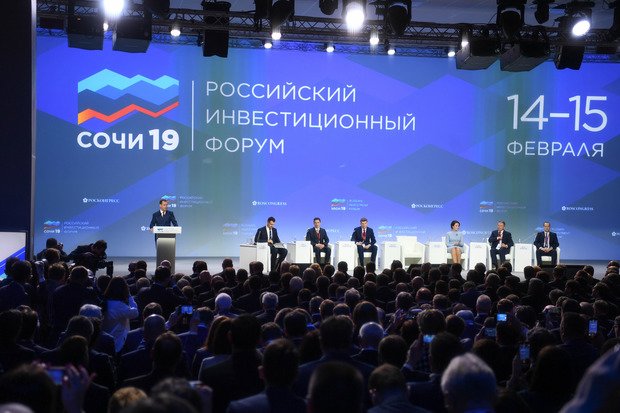
Third, in order to support investment activity in the most important sectors of the economy, an industry section of the plan to accelerate the growth of investment rates has been prepared, it is meant to increase investment in fixed assets to 25% of GDP. Geology, subsoil use, electricity, transport, agriculture, construction have their own specifics and require special regulation, Medvedev said. Special long-term tariffs will be set for the development of individual sections of the transport infrastructure. Participants of projects on construction and operation of the HSR will receive benefits for the payment of taxes and cost recovery. They will also clarify the mechanism of subsidies in industry and agriculture in terms of their impact on the investment process. Changes are also planned in the urban complex, which will simplify the mechanism of integrated development of territories and help attract new investors.
Fourth. The development of existing investment promotion instruments, including mechanisms of special investment contracts, which create conditions for investment in high-tech sectors. In particular, the new version of SPICS provides for mandatory participation of regions and municipalities.
To improve life in each region, they have developed a strategy for spatial development until 2025. Last year, the document was finalized, now with passports of national projects it will become the basis for decisions on the development of regions. It is strategically planned to form 12 macro-regions, based on the characteristics of the territories.
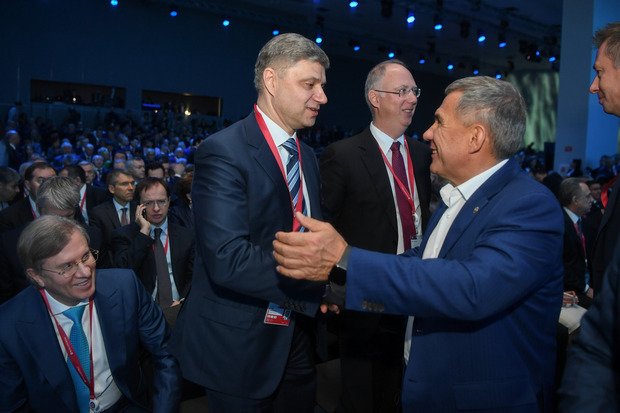
Fishman: ''If I'm convenient, then I'm not working well''
Rustam Minnikhanov also took part in the forum, in Sochi he met with the heads of Karelia, Novgorod Oblast and Penza Oblast, held talks with representatives of large businesses, and also spoke at three sessions. The first was the session of Vnesheconombank ''Economics of Urban Comfort'', which was moderated by Igor Shuvalov, Chairman of the State Development Corporation VEB.RF. Here, the Tatarstan president took the stage with his assistant Natalia Fishman.
Meeting the guests, Shuvalov noted that he knew that Fishman would make Kazan one of the best cities. Minnikhanov told how the attitude to public spaces was changed in Tatarstan, when in 2014 the Gorky Park was reconstructed together with Tatneft: ''I did not even expect that this project would give such an influx.'' The year 2015 was the Year of Parks and Gardens for the republic, then there came Fishman. ''Many things had to be changed — standards, norms, the main thing — people were needed. We had to change the relations of construction experts,'' the Tatarstan president said:
''I went and watched a lot myself. We systematically solve this problem, not only the capital, but all our municipalities have this programme. We try not just to give some money, take the programme, hold a discussion, choose the most effective, and almost every municipality receives the project. Some – in a year, the largest are implemented in three years. People are very important in this work. And it is necessary to work with the population, but Natalia Fishman will tell about it better, I support this line, someone does not like it, as always, but it is necessary to endure,'' Minnikhanov joked.
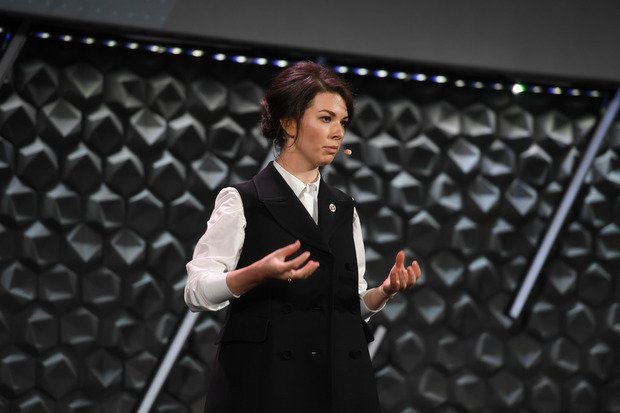
Shuvalov supported the ironic tone: ''Natalia, tell us how you were received in Tatarstan and why some people do not like you?''
''God grant everyone a leader like Rustam Nurgalievich. He says if I'm convenient, it means I'm not doing a good job. I just follow his directions,'' Fishman replied in the same spirit.
The assistant to the president of Tatarstan told how she was invited at first to be engaged only in Kazan, then there were Neberezhnye Chelny, Nizhnekamsk and Almetyevsk. She cited the example of Zainsk, where in 2015 they understood in their own way what the public space is: ''Just a paving stone, lantern, bench and litter bin. These are not bad people, just no one was seriously engaged in landscaping.'' In 2017, the situation was corrected.
Fishman held a short presentation, focusing on the basic principles of creating a comfortable urban environment: the involvement of people, working with local architects and manufacturers, interaction with business and further content. At the same time, a lot of money for successful projects is not necessary.
''Any region and city can find money for this,'' concluded Shuvalov and praised the republic: ''If Tatarstan takes up the business, you already know that it will be impossible to fail.'' Then he made an unexpected offer to Fishman:
''Support Fishman, let her have her own bureau. We really need support for the development of public spaces in Sakhalin, in Petropavlovsk-Kamchatsky.''
''We did 30% of the parks at the expense of enterprises. When you explain to people that it is your workers, your city, everyone support,'' Minnikhanov as if didn't notice his offer.
''Support Fishman!'' Shuvalov brought him back to the conversation.
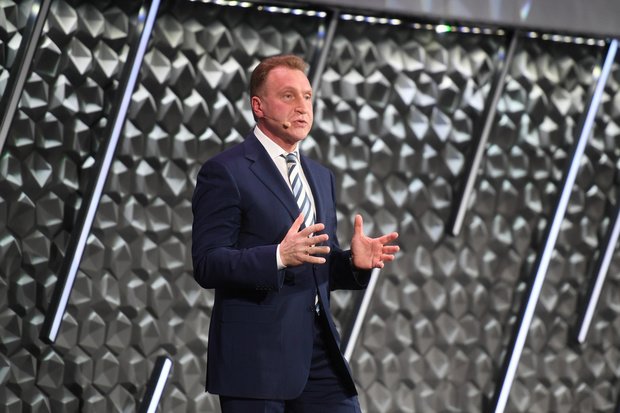
''We will support Fishman. Fishman will not fly without the republic, she will have a very short flight. We are ready to receive our colleagues, we are open. But in that form, with all due respect to you, I won't be able to give Fishman fully,'' retorted the president of Tatarstan.
''Ok, then do the bureau in Kazan. We will fly to Kazan,'' Shuvalov replied.
''We will do it, it will be our joint project, and you will have a reason to come to us,'' promised Minnikhanov.
''12,000 of equity-shared investors to those 4,000 hoodwinked that we already have — it will be very uncomfortable''
The second session, in which the Tatarstan president took part, was ''Regional policy in the context of Russia's spatial development''. Speaking about the task to increase the volume of housing commissioning in Russia — up to 120 million square metres per year, Minnikhanov noted that the republic in this direction will have to double the indicators.
He reminded that, according to the resource DOM.RF, in Russia 28% of developers do not fit into the standards of project financing.
''Tatarstan is not the last region, we have 109 developers, while 54 of them do not fit. What is it? It is 12,000 equity-shared investors to those 4,000 hoodwinked that we already have — it will be very uncomfortable. Although these are small companies. Those who have already stolen, we jailed them, two people: one is already in the jail, the other is being at this stage, that is, nobody desires to go to jail. Everyone want to solve this problem, no, really,'' assured Minnikhanov. ''We know who builds, if on 1 July we tell that's the only way you have is only to go to the bank, we will stop everything. Therefore, we raised this issue and reported on it.''
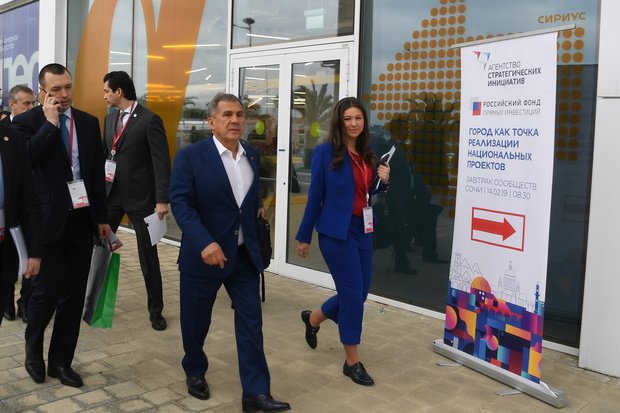
The third platform with his participation discussed the best practices of socio-economic development and integrated solutions for the regions. Here the Tatarstan president spoke about the forms of business support:
''Small and medium-sized businesses will not develop on their own, if we do not support them. It requires both administrative and financial support.''
According to him, today there are many tools to support and developing programmes, but for business development infrastructure is required: ''Parks, squares, mechanisms for involving small businesses in large projects or at the entrance to large enterprises. For example, a large producer of polymers. Our task is to process 30% of the polymers that we produce. This is a huge market.''
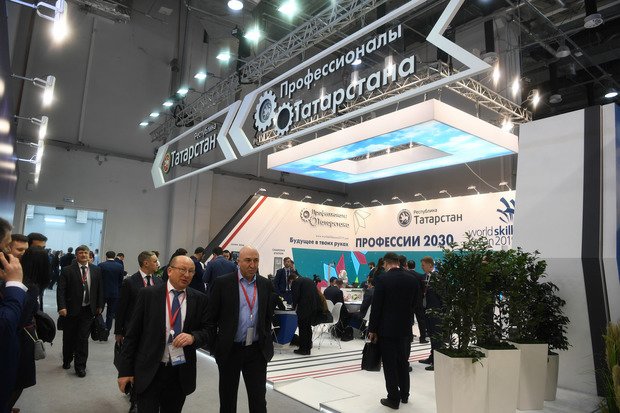
The head of the republic added that there are niches for small business in the sphere of processing: ''We have small enterprises that process 40,000-50,000 polypropylene. KAMAZ and aviation companies need components.''